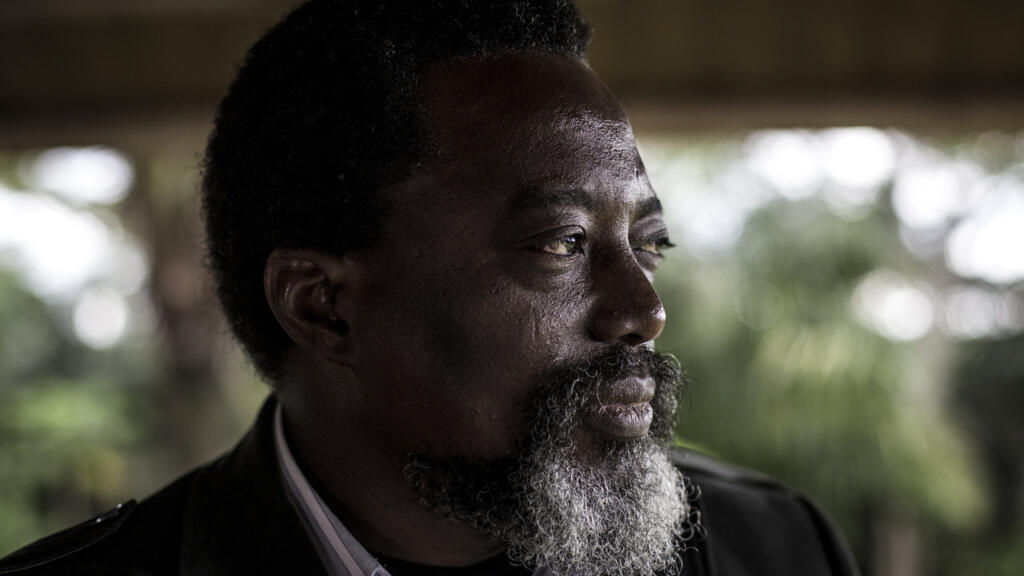
Former Democratic Republic of Congo president Joseph Kabila was sentenced to death in absentia on Tuesday by a military court in Kinshasa. The court found him guilty of treason, war crimes and organising an armed insurrection over his alleged collaboration with the Rwanda-backed M23 rebel group.
Kabila, 54, who led Congo from 2001 to 2019, was not in court and had no legal representation during the trial, which opened on 25 July. His whereabouts are unknown, and the judges ordered his immediate arrest.
The High Military Court said Kabila betrayed his duty of loyalty to the Congolese state, calling his actions “an outrage to millions of Congolese whom he led for 18 years”.
The court also ordered him to pay more than 33 billion dollars in damages to the state, to the eastern provinces of North Kivu and South Kivu and to associations representing victims of the conflict.
Rebel links
Judges spent nearly four hours explaining their decision. They said Kabila played a central role in the insurrection alongside Corneille Nangaa, the head of the Congo River Alliance political movement, and Rwanda.
“Joseph Kabila is the chief of the AFC/M23 coalition,” the court said.
Prosecutors presented evidence including the testimony of Eric Nkuba, the former chief of staff to Nangaa who was convicted of rebellion in August 2024.
Supporters of ex-DRC President Kabila denounce proposed death penalty as 'sham'
Nkuba alleged Kabila had been in regular phone contact with Nangaa about toppling President Félix Tshisekedi’s government.
The verdict makes Kabila the first former Congolese president ever convicted by a military tribunal.
Kabila, who became president in 2001 after the assassination of his father Laurent Kabila, stayed in power for 18 years, extending his rule by delaying elections before stepping aside after his chosen successor lost to Tshisekedi in 2018.
Sharp political divide
Kabila’s party, the People’s Party for Reconstruction and Democracy, rejected the ruling.
“This is a vast joke. We have always said this is a political trial,” the party’s permanent secretary Emmanuel Ramazani Shadary told RFI after the verdict. “Instead of seeking cohesion and national reconciliation, this trial will further divide Congolese.”
By contrast, victims’ lawyers hailed the outcome.
“Victims finally appear and the suffering they live in anonymity now has an author,” said Kasongo Mayombo, who represented several NGOs in eastern Congo.
International NGOs report mass killings and sexual violence in eastern DRC
“Perhaps we will go even further and find other authors or accomplices of the crimes they endured. This is the beginning of the end of impunity."
Richard Bondo, a lawyer for the Congolese state, said he was satisfied.
“As professionals, we must therefore bow while saluting the court’s decision,” he said, noting that the civil parties had requested life imprisonment rather than the death penalty, but the sentence “falls under the sovereignty of the judge”.
Ongoing conflict in east
Kabila has lived outside Congo for more than two years, mostly in South Africa. He was last seen publicly in May in the rebel-held city of Goma. It is unclear how the death sentence could be enforced.
Congo’s Senate voted in May to lift Kabila’s immunity from prosecution, a move he called dictatorial.
While denying the charges, he expressed support for the M23 campaign in an opinion piece in the South African newspaper Sunday Times in February. His allies say he still has ambitions to unite the opposition against Tshisekedi.
DR Congo urges world to recognise 'Genocost' tied to decades of resource war
Eastern Congo, rich in minerals, has been torn apart by armed conflict for 30 years. The violence surged in early 2025 when M23 rebels, supported by Rwandan forces, seized Goma in January and Bukavu in February.
The fighting has killed about 3,000 people this year and forced around seven million to flee their homes.
Rwanda denies backing M23, saying its forces act in self-defence against Congo’s army and Hutu militias linked to the 1994 Rwandan genocide. Tshisekedi’s government has suspended Kabila’s party and moved to seize its leaders’ assets.
Analysts warn the verdict could deepen Congo’s political divides and complicate efforts to end the conflict in the east.







